
Belarusian is an East Slavic language. It is one of the two official state languages in Belarus, alongside Russian. Additionally, it is spoken in some parts of Russia, Lithuania, Latvia, Poland, and Ukraine by Belarusian minorities in those countries.

The Byelorussian Soviet Socialist Republic, also simply known as Byelorussia, was a republic of the Soviet Union (USSR). It existed between 1920 and 1991 as one of fifteen constituent republics of the USSR, with its own legislation from 1990 to 1991. The republic was ruled by the Communist Party of Byelorussia and was also referred to as Soviet Byelorussia or Soviet Belarus by a number of historians. Other names for Byelorussia included White Russian Soviet Socialist Republic and Belorussian Soviet Socialist Republic.

The State Security Committee of the Republic of Belarus is the national intelligence agency of Belarus. Along with its counterparts in Transnistria and South Ossetia, it kept the unreformed name after declaring independence.

Western Belorussia or Western Belarus is a historical region of modern-day Belarus which belonged to the Second Polish Republic during the interwar period. For twenty years before the 1939 invasion of Poland, it was the northern part of the Polish Kresy macroregion. Following the end of World War II in Europe, most of Western Belorussia was ceded to the Soviet Union by the Allies, while some of it, including Białystok, was given to the Polish People's Republic. Until the dissolution of the Soviet Union in 1991, Western Belorussia formed the western part of the Byelorussian Soviet Socialist Republic (BSSR). Today, it constitutes the west of modern Belarus.
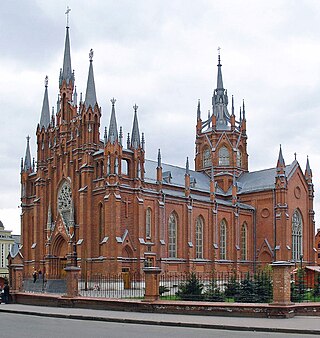
Belarusians are a major ethnic group in Russia. At the census of 2010, 521,443 Russian citizens indicated Belarusian ancestry. Major Belarusian groups live in the regions of Moscow, St. Petersburg, Kaliningrad, Karelia and Siberia. Most Belarusians in Russia are migrants from modern Belarus or their descendants, while a minor part of Belarusians in Russia are indigenous.

The National State TV and Radio Company of the Republic of Belarus, known as Belteleradiocompany or simply Belteleradio, is the state television and radio broadcasting service in Belarus.
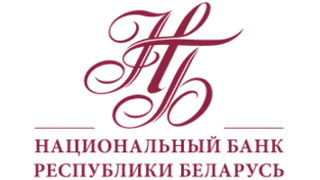
The National Bank of the Republic of Belarus is the central bank of Belarus, located in Minsk. The bank was created in 1922 under the name of "Belarusian Republican Bank" by the Soviet of People's Commissars of Byelorussia, but soon worked under the direction of the State Bank of the USSR. Undergoing reorganizations in 1959 and 1987, the bank appeared in its current form in 1990 after the passage of banking rules upon declaring independence from the Soviet Union.

Belarusian Trade-Economic University of Consumer Cooperation is a university in Gomel, Belarus.

Yanka Kupala State University of Grodno is а higher education institution located in Grodno. It is the largest regional higher education institution in the Republic of Belarus, university complex integrating all levels of education.
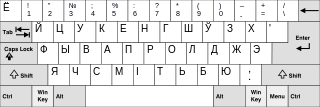
The official languages of Belarus are Belarusian and Russian.
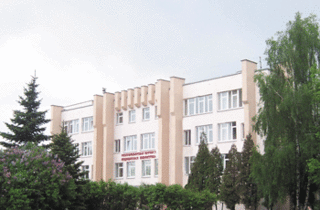
The Republican Scientific Medical Library (RSML) plays a role in providing scientists and specialists, research institutions and medical and preventive treatment facilities, educational establishments and other healthcare facilities of the Republic of Belarus with information and library services.
Belarusization was a policy of protection and advancement of the Belarusian language and recruitment and promotion of ethnic Belarusians within the government of the Belarusian SSR (BSSR) and the Belarusian Communist Party, conducted by the government of the BSSR in the 1920s.

Vera Ignatyevna Maslovskaya was a Belarusian teacher, poet and nationalist, who worked for an independent Belarus in the interwar period. Founding some of the first schools that taught in the Belarusian language, her teaching career was interrupted with her arrest for her underground activities against the Polish government. When the Soviet Union took control of the area, during World War II, she returned to teaching, establishing schools which taught a Belarusian curriculum in several cities. At the end of the war, she fled to Poland to escape a resurgence in threats against former nationalist activists. She worked in a kindergarten for five years in Silesia and then returned to Supraśl, where she served as the head of the city library and later on the Białystok District Council. She was a socialist and is considered to be one of the founders of the Belarusian women's movement.
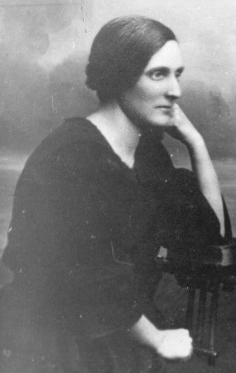
Paluta Aliaksandraŭna Badunova was a key female political figure in the Belarusian independence movement of the early 20th century. She was the only woman at the Rada of the Belarusian Democratic Republic, and later became a victim of Soviet repressions in Belarus.

The Committee for State Security of the Byelorussian Soviet Socialist Republic was the main state security organization in the Byelorussian Soviet Socialist Republic. It was a branch of the Committee for State Security of USSR.

The State Forensic Examination Committee of the Republic of Belarus (SFEC RB) (Belarusian: Дзяржаўны камітэт судовых экспертыз Рэспублікі Беларусь) — is a centralized system of state bodies in Belarus, exercising powers in the field of forensic expert activity in accordance with legislative acts. The structure was created on the basis of the State Service of Medical Forensic Expertise, expert divisions of law enforcement bodies, emergency departments and units, the Armed Forces and expert units of the Ministry of Justice of the Republic of Belarus. Formed on April 22, 2013, began its operations on July 1, 2013. The chairman of the SFEC RB is Andrei Shved.

The Ministry of Justice of the Republic of Belarus is a Belarusian government agency that is charged with the administering and enforcing the justice system of Belarus.

The Militsiya of the Republic of Belarus is a law enforcement agency in Belarus responsible for regular policing duties in the country.
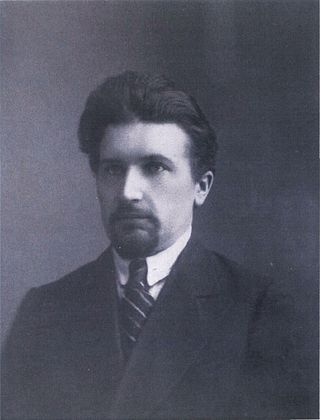
ArkadźSmolič was an academic, active participant of the Belarusian independence movement and a victim of Stalin's purges.
Aliaksandar Burbis, better known as Aleś Burbis, was a Russian-Belarusian journalist, historian, political figure, actor, director, and ethnologist. He was a founder of Belarusian theatre. He served as the first Chairman of the Belarusian Rada of the Belarusian Democratic Republic.




















